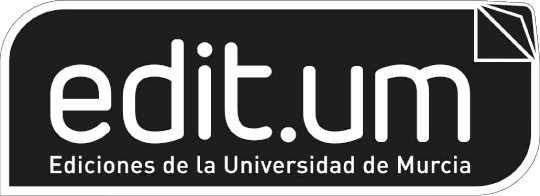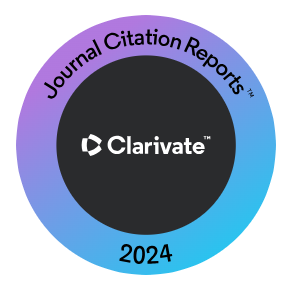El futuro de la educación cívica. Entrevista con Keith C. Barton
Agencias de apoyo
- Ministerio de Universidades para la Formación de Profesorado Universitario.
Resumen
En esta entrevista al investigador estadounidense Keith Barton se ofrece una reflexión crítica sobre la enseñanza de las ciencias sociales y la educación cívica en las últimas décadas. Barton, autor de Teaching History for the Common Good y Curriculum for Justice and Harmony, entre otros libros de gran calado, aboga por una educación centrada en la acción, la justicia y la esperanza, defendiendo un modelo que prepare a los estudiantes para transformar el mundo.
Descargas
-
Resumen325
-
PDF178
-
PDF 178
-
EPUB30
-
EPUB 3
Citas
Barton, K. C., & Levstik, L. S. (1996). “Back when God was around and everything”: The development of children’s understanding of historical time. American Educational Research Journal, 33, 419-454.
Barton, K. C. (1997a). “I just kinda know”: Elementary students’ ideas about historical evidence. Theory & Research in Social Education, 25, 407-430.
Barton, K. C. (1997b). “Good cooks and washers”: Slave hiring, domestic labor, and the market in Bourbon County, Kentucky. Journal of American History, 84, 436-460.
Barton, K. C., & Levstik, L. S. (2004). Teaching history for the common good. Lawrence Erlbaum Associates.
Barton, K. C., & Ho, L. C. (2022). Curriculum for justice and harmony: Deliberation, knowledge, and action in social and civic education. Routledge
Barton, K. C. (2024). Can we teach a hopeful history? Teaching History, 58(4), 9-12.
Donaldson, M. (1978). Children's minds. Fontana Press.
Ho, L. C., & Barton, K. C. (2024). Centering Hope in Social Studies Education. Social Education, 88(6), 334-340.
Levstik, L. S., & Barton, K. C. (1996). “They still use some of their past”: Historical salience in children’s chronological thinking. Journal of Curriculum Studies, 28, 531-576.
Levstik, L. S., & Barton, K. C. (1997). Doing history: investigating with children in elementary and middle schools (First edition). L. Erlbaum Associates.
Washington, E. Y., & Barton, K. C. (Eds.). (2025). The Future of Civic Education: Rebuilding a Democracy in Ruins. Routledge.
Wertsch, J. V. (1998). Mind as action. Oxford: Oxford University Press.
Annex: publications of Keith C. Barton
Books
Barton, K. C., & Levstik, L. S. (2004). Teaching history for the common good. Routledge.
Barton, K. C. (Ed.) (2006). Research methods in social studies education: Contemporary issues and perspectives. Information Age Publishing.
Barton, K. C., & Ho, L. C. (2022). Curriculum for justice and harmony: Deliberation, knowledge, and action in social and civic education. Routledge.
Levstik, L. S., & Barton, K. C. (2008). Researching history education: Theory, method, and context. Routledge.
Levstik, L. S., & Barton, K. C. (2023). Doing history: Investigating with children in elementary and middle schools. (6th ed.) Routledge.
Washington, E. Y., & Barton, K. C. (Eds.) (2025). The future of civic education: Rebuilding a democracy in ruins. Routledge.
Book chapters
Barton, K. C. (2009). The denial of desire: How to make history education meaningless. In L. Symcox & A. Wilschut (Eds.), National history standards: The problem of the canon and the future of teaching history (pp. 265-282). Information Age Publishing.
Barton, K. C. (2012). School history as a resource for constructing identities: Implications of research from the United States, Northern Ireland, and New Zealand. In M. Carretero, M. Asensio, & M. Rodríguez-Moneo (Eds.), History education and the construction of national identities (pp. 93-107). Information Age Publishing
Barton, K. C. (2014). Legacies of the Chat-N-Nibble. In C. Woyshner (ed.), Leaders in educational studies: Social Studies. Sense Publishers.
Barton, K. C. (2015). Reconsidering religion in the curriculum. In J. H. James (Ed.), Religion in the classroom: Dilemmas for democratic education (pp. 67-78). Routledge.
Barton, K. C., & Avery, P. G. (2016). Research on social studies education: Diverse students, settings, and methods. In Bell, C. A., & Gitomer, D. (Eds.), Handbook of research on teaching (5th ed.) (pp. 985-1038). American Educational Research Association.
Barton, K. C., & Avery, P. G. (2017). Exemplars from the field of social studies education research. In Manfra, M. M., & Bolick, C. M. (Eds.), The Wiley handbook of social studies research (pp. 168-188). John Wiley & Sons, Inc.
Barton, K. C. (2017). Shared principles in history and social studies education. In M. Carretero, M. Grever, & S. Berger (Eds.), Palgrave handbook of research in historical culture and education (pp. 449-467). Palgrave Macmillan.
Barton, K. C. (2019). Teaching difficult histories: The need for a dynamic research tradition. In M. Gross & L. Terra (Eds.), Teaching and learning the difficult past: Comparative perspectives (pp. 11-25). Routledge.
Barton, K. C. (2022). Schematic templates and diverse populations in the United States: Narrative limitations in young people’s understanding. In I. B. de Luna & F. van Alphen (Eds.), Reproducing, rethinking, resisting national narratives. A sociocultural approach to schematic narrative templates in times of nationalism (pp. 79-95). Information Age.
Barton, K. C. (2022). How history teaching may perpetuate misconceptions about historical agency. In G. Cassar & Y. Vella (Eds.), History teaching & research: bridging the theory/practice divide. Volume 4 (pp. 74-87). L-Università ta’ Malta and History Teachers Association (Malta).
Barton, K. C. (2023). Learning in history and social studies. In R. J. Tierney, F. Rizvi, & K. Erkican (Eds). International Encyclopedia of Education (4th ed.). Volume 6. (pp. 315-320). Elsevier.
Barton, K. C. (2024). Separating rights and responsibilities. In B. Mallon, F. Waldron, and C. Ní Cassaithe (Eds.), Pushing the boundaries of Human Rights Education: Concepts, challenges and contexts (pp. 15-31). Routledge.
Seow, T., Barton, K. C., & Ho, L. C. (in press). Empathy and compassion in geography education. In J. Mitchell & S. Bednarz, Handbook of geography education. Springer.
Articles in Refereed Journals (national and international)
Barton, K. C. (2001). “You’d be wanting to know about the past”: Social contexts of children’s historical understanding in Northern Ireland and the United States. Comparative Education, 37, 89-106.
Barton, K. C. (2001). A sociocultural perspective on children’s understanding of historical change: Comparative findings from Northern Ireland & the United States. American Educational Research Journal, 38, 881-913.
Barton, K. C. (2002). “Oh, that’s a tricky piece!”: Children, mediated action, and the tools of historical time. Elementary School Journal, 103, 161-185.
Barton, K. C., & McCully, A. W. (2005). History, identity, and the school curriculum in Northern Ireland: An empirical study of secondary students’ ideas and perspectives. Journal of Curriculum Studies, 37, 85-116.
Barton, K. C., & McCully, A. W. (2009). When history teaching really matters—Understanding the impact of school intervention on students’ neighbourhood learning in Northern Ireland. International Journal of Historical Learning, Teaching and Research, 8, 28-46.
Barton, K. C., & McCully, A. W. (2010). “You can form your own point of view”: Internally persuasive discourse in Northern Ireland students’ encounters with history. Teachers College Record, 112, 142-181.
Barton, K. C., & McCully, A. W. (2012). Trying to “see things differently”: Northern Ireland students’ struggle to understand alternative historical perspectives. Theory & Research in Social Education, 40, 371-408.
Barton, K. C. (2012). Agency, choice and historical action: How history teaching can help students think about democratic decision making. Citizenship Teaching and Learning, 7, 131-142.
Barton, K. C. (2015). Elicitation techniques: Getting people to talk about things they don’t usually talk about. Theory & Research in Social Education, 43, 179-205.
Barton, K. C. (2015). Young adolescents’ positioning of human rights: Findings from Colombia, Northern Ireland, Republic of Ireland, and the United States. Research in Comparative and International Education, 10, 48-70.
Barton, K. C. (2020). Students’ understanding of institutional practices: The missing dimension in human rights education. American Educational Research Journal, 57, 188-217. https://doi.org/10.3102/0002831219849871
Barton, K. C., & Ho, L. C. (2020). Cultivating sprouts of benevolence: A foundational principle for curriculum in civic and multicultural education. Multicultural Education Review, 12(3), 157-176. https://doi.org/10.1080/2005615X.2020.1808928
Barton, K. C. (2024). Knowledge without disciplines: A critique of social realism’s disciplinary fixation. Journal of Curriculum Studies 56(3), 235–245. https://doi.org/10.1080/00220272.2024.2328058
Ho, L. C., & Barton, K. C. (2020). Preparation for civil society: A necessary element of curriculum for social justice. Theory & Research in Social Education, 48(4), 471-491. https://doi.org/10.1080/00933104.2020.1763880
Ho, L. C., & Barton, K. C. (2022). Critical harmony: A goal for deliberative civic education. Journal of Moral Education, 51(2), 276-291. https://doi.org/10.1080/03057240.2020.1847053
Thornton, S. J., & Barton, K. C. (2010). Can history stand alone? Drawbacks and blind spots of a “disciplinary” curriculum. Teachers College Record, 112, 2471-2495.
Other publications
Barton, K. C. (2010). Investigación sobre las ideas de los estudiantes acerca de la historia. Revista Enseñanza de las Ciencias Sociales, 9, 97-113.
Barton, K. C. (2018). Historical sources in the classroom: Purpose and use. HSSE Online: Research and Practice in Humanities and Social Studies Education,7(2). http://www.hsseonline.edu.sg/journal/volume-7-issue-2-2018/historical-sources-classroom-purpose-and-use
Barton, K. C. (2019). What should we teach about human rights? Implications from international research. Social Education, 83, 212-216.
Barton, K. C. (2021). Agencia, elección y acción histórica: cómo la enseñanza de la historia puede ayudar a los estudiantes a pensar en la toma de decisiones democráticas. Revista Paraguaya de Historia, 3(2), 25-46. (Original work published 2012.)
Barton, K. C., & Ho., L. C. (2023). Collaborative deliberation in the classroom. Phi Delta Kappan, 104(5), 44-49. https://doi.org/10.1177/00317217231156229
Derechos de autor 2025 Verónica Pardo Quiles

Esta obra está bajo una licencia internacional Creative Commons Atribución-CompartirIgual 4.0.
Todos los contenidos publicados en nuestra revista están sujetos a una licencia Atribución 4.0 Internacional (CC BY-SA 4.0) de Creative Commons. Usted es libre de compartir (copiar y redistribuir el material en cualquier medio o formato) y adaptar (remezclar, transformar y crear a partir del material para cualquier finalidad, incluso comercial), bajo los siguientes términos:
Reconocimiento: Debe reconocer adecuadamente la autoría, proporcionar un enlace a la licencia e indicar si se han realizado cambios. Puede hacerlo de cualquier manera razonable, pero no de una manera que sugiera que tiene el apoyo del licenciador o lo recibe por el uso que hace.
CompartirIgual: Si remezcla, transforma o crea a partir del material, deberá difundir sus contribuciones bajo la misma licencia que el original.
El texto completo de la licencia se puede consultar en: Licencia Creative Commons












